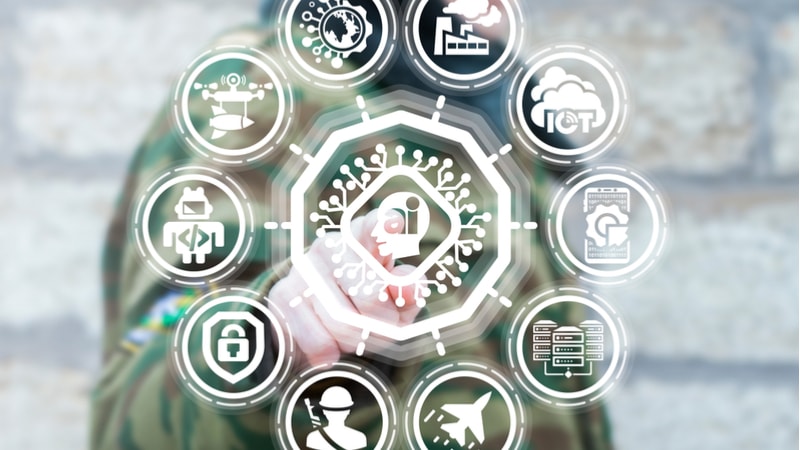
When the Department of Defense (DoD) awarded a big artificial intelligence tech contract earlier this month, it marked one of the department’s first attempts at building its AI ethical principles into a request for proposals (RFP).
“One of the things we started insisting on and trying out is, what if we started embedding some of those AI policies, those ethics policies, into the actual RFP that we send out,” said Nand Mulchandani, CTO of the DoD’s Joint Artificial Intelligence Center (JAIC), during a May 27 online event hosted by GovExec.
The JAIC and the General Services Administration (GSA) awarded Booz Allen Hamilton a five-year, $800 million task order on May 18 to support warfighting operations with AI-based solutions. The award came several months after the department adopted the five ethical principles of responsible, equitable, traceable, reliable, and governable for AI deployment on February 24.
“This would have been one of the first times ever that the DoD would have started to embed and think about some of those policies actually in practice,” said Mulchandani of the AI contract. He added there was a “huge internal debate” about how to incorporate these principles practically in code.
“Code and technology generally gets ahead of where things really should be,” said Mulchandani, who spent years in the private sector with a number of technology firms. “Ethics and policy are absolutely one of the most serious things we deal with here at the JAIC.”

Mulchandani put the consequences of misuse in perspective with a splash of humor. “If the AI in Netflix offers up a bad movie, you end up with basically a bad movie night,” he said. “We can’t end up with a bad movie night here at the DoD.”
Rick Piña, who previously served as CTO of the Army and now works as a chief technology advisor for World Wide Technology, sees ethical challenges for the government in the years ahead, especially as the concept of privacy evolves.
“From an ethics perspective, this is interesting ethically, our concept of privacy, and what the concept of privacy was 10 years ago, 20 years ago, is going to be drastically different than it will be 20 years from now,” said Piña, speaking at the same event. “The AI that will be applied to those IoT [Internet of Things] devices, the level of exposure that the government will have, that industry will have, that the world will have, will cause us to make some hard decisions.”
“I foresee the privacy issues and the exposure issues really causing us to have hard discussions between what we can do, technically, and what we should do,” Piña said.
